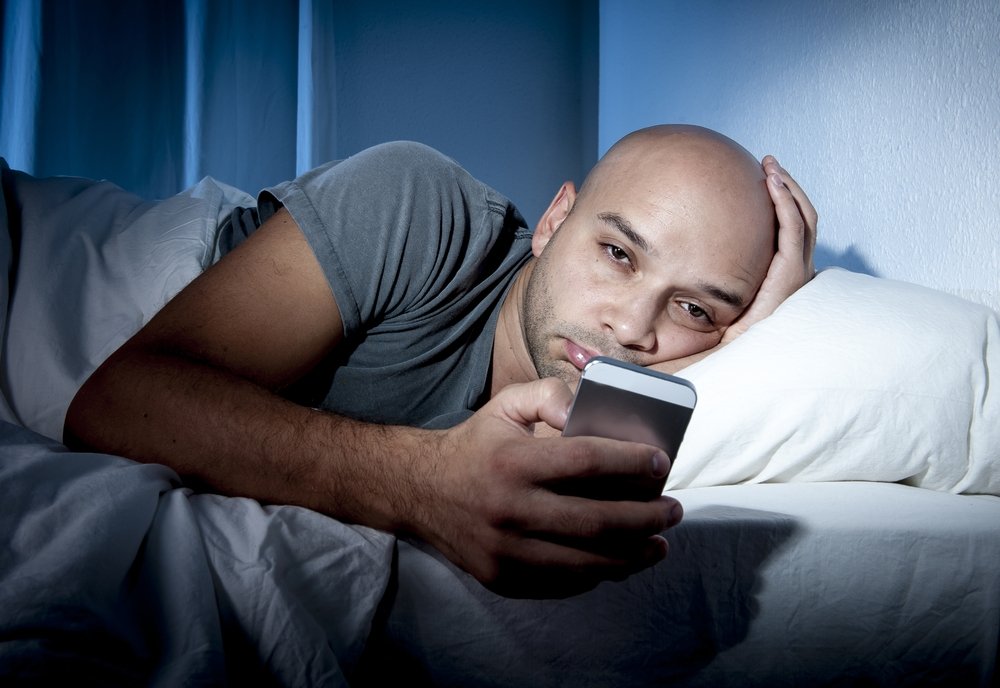© Turkuvaz Haberleşme ve Yayıncılık 2024
Launching Netflix on mobile, catching up on your favorite show to kill time as you nod off slowly to sleep... We have all been there, done that, but almost all of us have also complained about not getting enough sleep. There seems to be a correlation here – and the experts agree.
Insomnia, which is expressed as chronic sleeplessness, is spreading rapidly, especially with the wide-spread effects of the pandemic that has been ongoing for the last two years, even as scientific studies reveal that healthy and adequate sleep is extremely important for the immune system.
"Those reporting insomnia problems increased by 24% due to factors such as the increase in stress and anxiety levels during the COVID-19 pandemic, reluctance to go to the hospital for the treatment of sleep problems, decreased daily physical activity and less exposure to natural light," Dr. Beyza Çitçi Yalçınkaya, a neurology specialist at Acıbadem Fulya Hospital, says.
Emphasizing that a person can benefit by making some intellectual and behavioral changes to fight insomnia, Yalçınkaya offers nine effective suggestions and warnings for getting a better night's sleep.
Try to reduce thoughts about sleep. Your bed should remind you of sleep, not sleeplessness. For this reason, do not go to bed before you are sleepy.
When you cannot sleep, get out of bed within 15 to 20 minutes and change rooms, and go to bed when you feel sleepy again. Repeat this all night if necessary. When you change places, try methods such as meditation, relaxation exercises and reading books and then go back to bed when you feel sleepy again.
Accepting that sleep is a natural state like breathing and being hungry and that you will fall asleep eventually, knowing that everyone's sleep time may be different, can be a start in reducing sleep-related anxieties.

Many people, especially those who cannot stay away from social media, go to bed with their mobile phones and browse other people's posts, prompting both positive and negative thoughts and exposure to the light of the screen.
However, when you go to bed, your brain should not be full of other experiences and problems. As with the phone and computer, watching TV and reading in bed are among the factors that negatively affect falling asleep. Try to read your book in a different place, not in the bed where you will fall asleep.
Scientific studies reveal that regular exercise significantly improves sleep quality. Therefore, do not stay still during the day; instead, walk and exercise. Regular walking and exercise, which is beneficial to every aspect of health, also reduces emotional stress.
The ideal time to exercise to fight sleep problems is in the afternoon. Heavy exercise just before bedtime increases alertness, thus making it harder to sleep.
Caffeine, alcohol and nicotine significantly impair sleep quality. It should be remembered that caffeine is not only found in coffee. Those with sleep problems should avoid such stimuli and stay away from tea and coffee in the afternoon.
Streamlining bedtime, wake-up times and even daily eating and exercise times, and adhering to a regular schedule helps our biological clock work better. On weekends, bedtime and wake-up times should be the same times as during the week.
Make sure to go to bed and wake up at the same time seven days a week.
"For good sleep, it is necessary not to go to bed hungry and avoid heavy meals before going to bed. It is beneficial to go to bed at least two to three hours after eating. Studies have reported that L-tryptophan, found in dairy products, can contribute to sleep," Yalçınkaya says.
Although short-term sleep in the afternoon is beneficial for general health, the length of time that people with insomnia sleep during the day negatively affects their night sleep. If you feel the need for sleep during the day, you can sleep for a short time before 2 p.m.

Since it is very important for a quality night's sleep that the place you sleep is quiet, cool, dark and ventilated before going to bed, make the necessary arrangements in accordance with these rules.
The ideal room temperature for good sleep is 18 to 19 degrees Celsius (64.4 to 66.2 degrees Fahrenheit).
"Since stress, anxiety and environmental factors, as well as many diseases such as neurological diseases, hypertension, reflux, rheumatic diseases and fibromyalgia can trigger insomnia, it is necessary to be aware of these diseases and to start the treatment that the physician deems necessary," Yalçınkaya stresses.
"In addition, it is necessary to apply to sleep clinics for the diagnosis and treatment of many diseases such as sleep apnea, snoring, leg movements during sleep, which can affect sustaining sleep," she advises.
